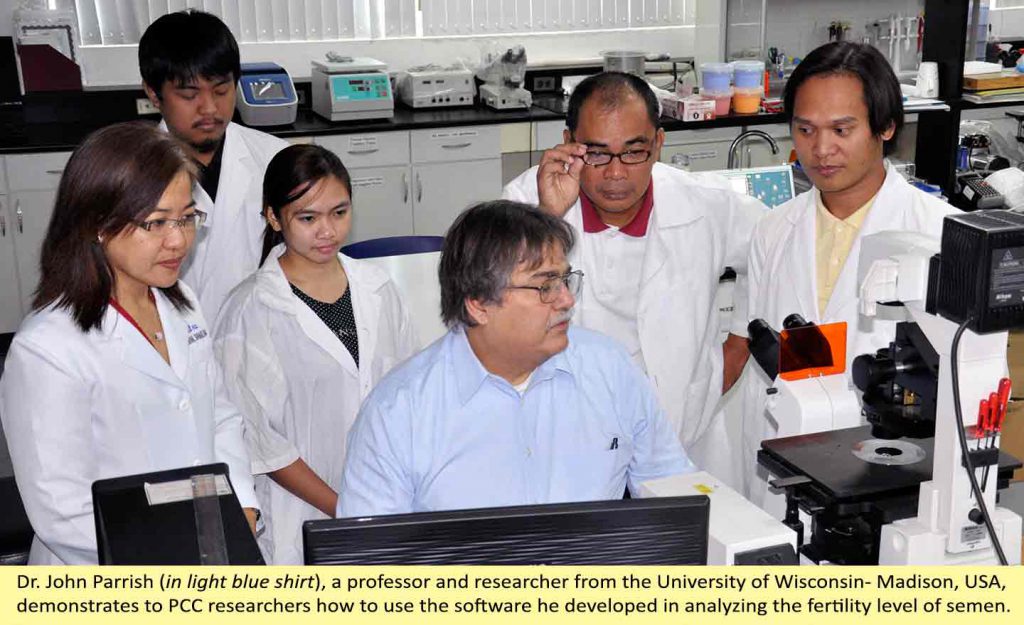A professor from the Animal Sciences Department of the University of Wisconsin-Madison, USA, met with researchers of the Philippine Carabao Center (PCC) in a technical caucus held December 22 at the PCC national headquarters during which he discussed his paper on the predictability of bull fertility using Fourier Harmonic Analysis.
Dr. John Parrish, who completed his post-doctoral degree on reproductive physiology at UW-Madison, presented his study titled, “Quantifying Sperm Nuclear Shape with Fourier Harmonic Analysis and Relationship to Spermatogenesis and Fertility” in which the fertility levels of cattle bull, boar and stallion were determined by studying the shape of the sperm DNA.
As a result of the study, Parrish developed a software specifically programmed to analyze semen of each of the three species using established parameters.
According to Dr. Danilda H. Duran, Scientist I from PCC’s reproductive biotechnology unit, the agency is collaborating with Parrish to adopt the technology and develop parameters specifically for buffaloes.
“There are certain differences among the species. Some parameters used in cattle may not be applicable to buffaloes,” Duran said.
She added that the study will greatly help PCC in the ongoing implementation of its artificial insemination project, which is part of its genetic improvement program covering dairy buffaloes, since only bulls with high fertility level will be used in the undertaking.
“The conventional sperm quality analysis we are currently using cannot predict the fertility rate of the bulls. It can only address the issues on the compensable aspects of the semen such as motility and concentration rate. Dr. Parrish’s study can detect the uncompensable issues such as DNA-based defects,” she explained.
Bulls that are found to be of lower fertility level may be treated and may later be used in the program, she added.
Some 30 PCC researchers participated in the technical caucus.

